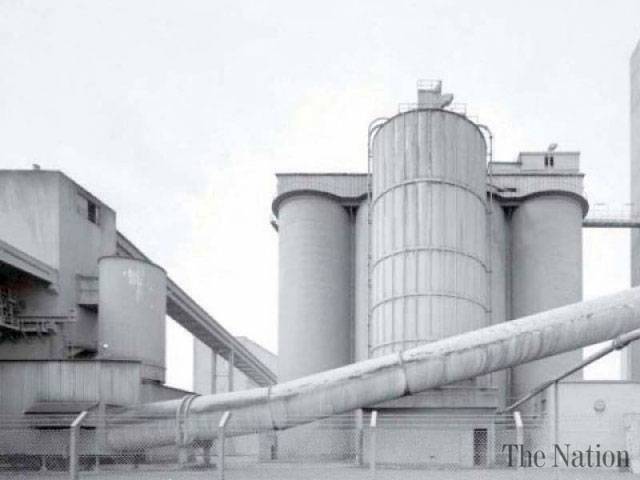LAHORE - The Standing Committee of the cabinet on legislative business has recommended the inclusion of the cement industry in schedule-C of the industrial location policy 2002.
Punjab Chief Minister Shehbaz Sharif has already approved the summary for the imposition of ban on installation of new cement plants in the entire province. It is pertinent to mention here that, the law secretary Syed Abul Hasan Najmi, a couple of days back, had proposed to forward the matter to the chief minister. The CM may kindly approve the proposal of enfolding the cement industries within the regulatory framework under the ordinance, he wrote. Moreover, the matter may be placed before the cabinet sub-committee on legislation for appropriate recommendations to the cabinet, the law secretary had written.
The said schedule-C is category of industries which cannot be established without prior approval of the government vide, location policy notified on April 4, 1989. Earlier, in the location policy dated October 26, 1986 and location policy notified on April 11, 1981, the industry was placed in the schedule-C. The committee also forwarded the subject matter to the provincial cabinet for approval through circulation, in terms of the Punjab government rules of business, 2011.
Earlier, after the approval of the chief minister on imposition of ban on installation and enlargement of the cement units across the province, the standing committee was requested to recommend the inclusion of the said industry in the schedule. As per the details, secretary industries briefed the standing committee of the cabinet that ‘The Punjab Industries (Control on Establishment & Enlargement) Ordinance 1963 is the legal instrument for planned and organised growth of industries in the province.
Section 3 of the ordinance is about the mandatory requirement of prior permission from the government for establishment of any industrial undertaking while section 11 of the ordinance empowers the government to relax any industry or class of industries from any or all provisions of the ordinance. The committee was further apprised that the cement industry had been excluded from the schedule-C.
As a number of environmental issues have been highlighted regarding overexploitation of the natural resources by the cement factories thought enlargement in their production capacities thereby resulting into the decline in water tables and increase in air pollution also smog. The Industrial, Commercial & Institutional (IC&I) department submitted a summary for the CM for placing cement industry in the schedule-C.
The CM approved the proposal of the department and further decided to place the matter before cabinet thought its standing committee. The mines and minerals department secretary also examined the case and wrote that the Punjab province has 12 cement plants out of which eight are located in the salt range. Residents of the area have become increasingly resistant to the installation of new plants in the most affected area.
The M&M Secretary further wrote that ban on large-scale mining was imposed on October 14, 2015, under the directions of competent authority with a view to revamping the legal framework of mines and minerals sector. The process is in progress.
Official documents further told that the Punjab chief minister in consecutive meetings had also directed to probe the matter of extension of existing cement plants by a committee comprising chief minister inspection team (CMIT) Chairman and the director-general anti corruption establishment. The documents further tell that an international consultant Artelia was hired to conduct the study.
It is to be noted that the unchecked expansion of the cement production units in the salt range damaged underground water tables in the area that dried the historic Katas Raj Temple sacred pond”. The apex court had to take suo moto on it and directed the Chakwal deputy commissioner to shut down tube wells of private cement factories near the temple pond in Chakwal. The CJP also ordered the factory owners to fill the empty temple pond with water.
The Punjab CM held meeting on October 6, 2017 and directed that the scope of the study would include whole of province instead of specific areas of the salt range. Besides these formalities, the government intends to do legislation on the sensitive issue of the cement manufacturing units that were causing underground water and environmental issues.






